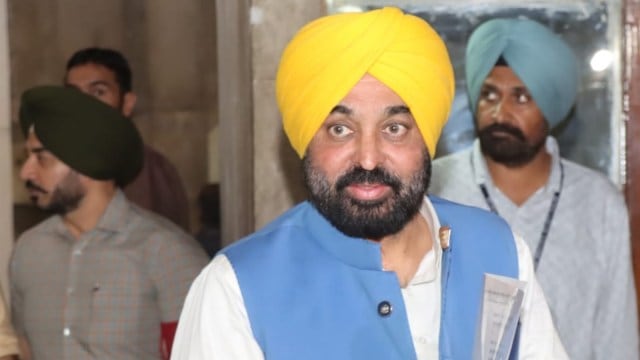Special to the Express | Accountability is the key to rebuilding trust in Punjab
Punjab’s revival depends on accountability, efficiency, and the courage to govern with integrity.
 Governance must recover its nobility as a public duty, not refuge. (Express Photo)
Governance must recover its nobility as a public duty, not refuge. (Express Photo)Written by Pushpinder Singh Gill
Punjab stands at a crossroads, not of resources but of resolve. Governance is the bloodstream of any society; when it weakens, schools decay, roads crumble, and trust erodes. The state’s crisis is no longer just financial—it is moral and managerial as well. This silent corrosion has loosened the bond between citizens and the administration meant to serve them.
A government employee is the state in motion. Every teacher, patwari, or police constable connects authority to the people. When they work with dignity, the system breathes; when they lose faith, governance collapses into apathy. Timely salaries and fair working conditions are not indulgences but the fuel that drives the engine of public service. Yet welfare without accountability only breeds inertia. Every task must carry a timeline, every delay a cost. Reward efficiency, not conformity; penalise indifference, not initiative.
Punjab’s bureaucracy still carries its colonial design. It was built to control, not to serve—valuing obedience over innovation and hierarchy over compassion. That legacy persists in offices where procedure trumps purpose and the file outweighs the citizen. Reform must dismantle that culture by rewarding problem-solving and encouraging risk in the public interest.
Across the world, governments have reimagined administration as service. Singapore fused honest pay with complete accountability; Estonia put nearly all public services online and cut corruption dramatically. In India, Karnataka’s Sakala Act mandates time-bound service delivery, with penalties for delay. These show that efficiency is not cultural luck but a governance decision. If passports can be issued in days, land records and revenue files should not linger for months.
Technology can be a disinfectant against opacity. The same digital strength that built Aadhaar, UPI, and GST can rebuild Punjab’s administration. Departments must link to public dashboards where citizens can track file movement, payments, and grievances. Visibility must be systemic, so accountability becomes instinctive. When citizens know who is responsible, delay becomes risk rather than habit.
Yet technology cannot substitute intent. Political will must precede digital transformation. Change will face resistance from those who thrive on opacity. True leadership lies in protecting honest officials, retraining those struggling with new systems, and building institutions that outlast slogans. Timely and fair salaries, too, are more than welfare—they are an economic necessity. Each delayed pay cheque saps morale, shrinks spending, and slows the market. Paying on time is not generosity; it is sound economics.
Punjab’s decline, however, is not only administrative—it is moral. Citizens no longer trust the state. The police inspire more fear than respect; the revenue office is seen as a toll gate. Corruption is not incidental but organised. As Aristotle warned, governments decay when they forget the purpose of power. Power survives only when used with integrity.
Performance-linked appraisal system
Reform must therefore be both structural and spiritual. A performance-linked appraisal system should replace seniority as the measure of merit. Evaluation must be rooted in clear indicators—service delivery times, grievance resolutions, and procedural accuracy. Promotions and bonuses should be merit-based; chronic underperformance must trigger retraining or review. Governance must finally learn to measure itself.
Citizens, too, share responsibility. Every bribe accepted or offered sustains the rot. Punjab needs a secure digital platform for reporting corruption, protected by law and monitored independently. Every complaint should carry a tracking ID visible to the complainant until closure. Systems must make honesty the easiest choice, not the hardest.
Punjab’s revival will not emerge from freebies or rhetoric. It will come when clerks clear pensions on time, teachers teach with pride, and police serve without prejudice. Governance must recover its nobility as a public duty, not refuge. Renewal begins when excuses end—when efficiency overcomes apathy and integrity defeats inertia. Punjab will rise not through noise but through the quiet discipline of good governance.
(The writer is a professor at the School of Management Studies at Punjabi University)







